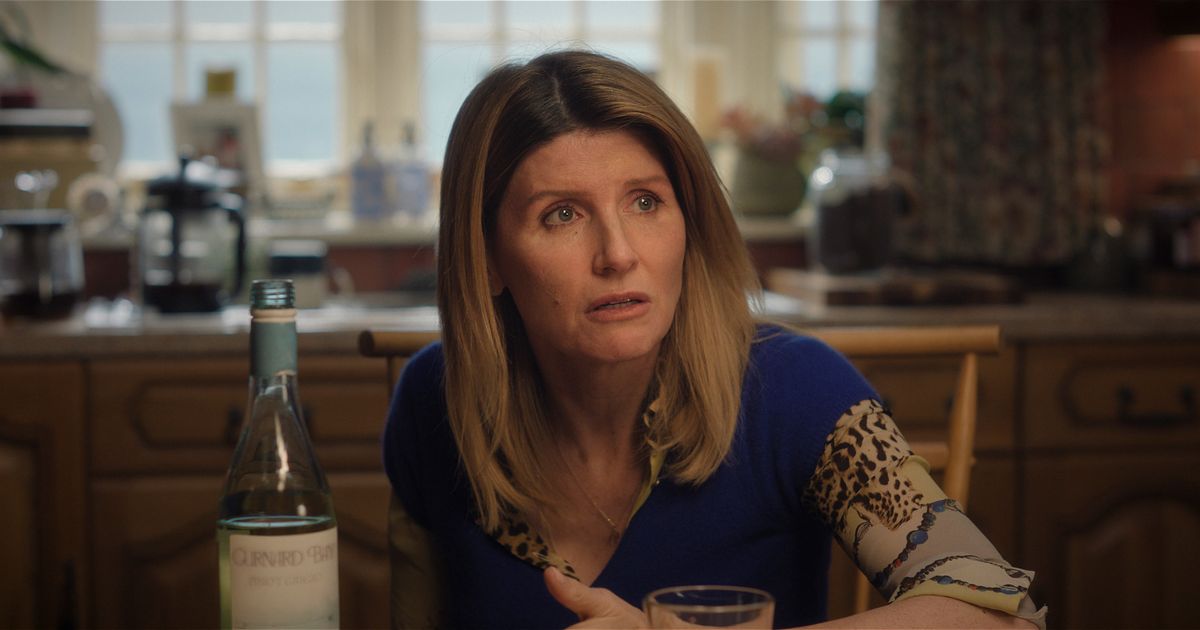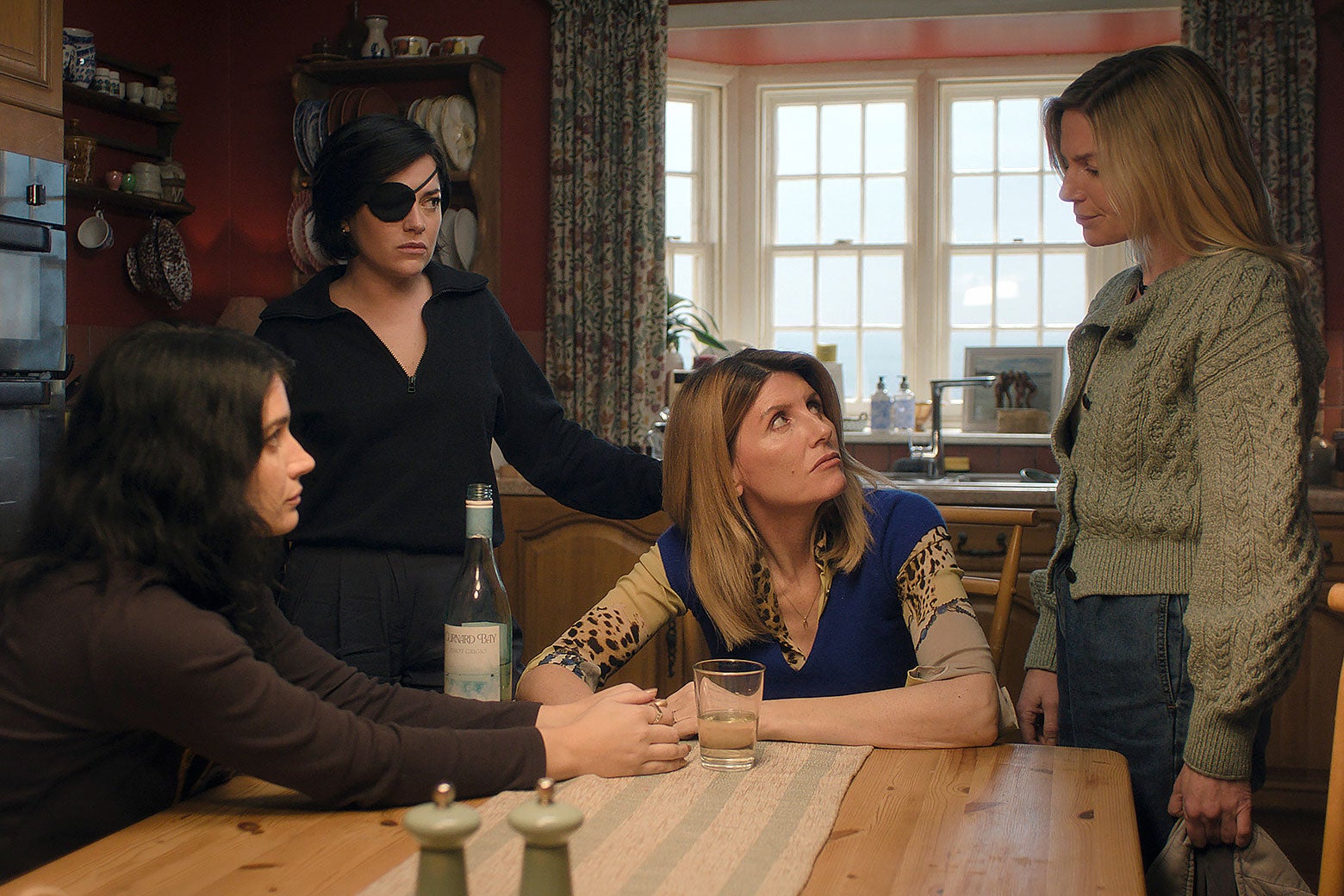Tangier The Corniche space turns into something resembling a war zone in which the constant hum of drones is heard, and shells fall on the heads of innocent civilians, in a brutal war of extermination.
The occupation army does not differentiate between a child playing in the street, a woman searching for a living, or a man trying to protect his family. Screams tear throats and blood floods the streets, at a time when the military machine continues to grind people, trees and inanimate objects.
These are scenes from a play performed by young children in the city Tangier Moroccan, and it was creatively directed by theater amateurs, in solidarity with the people of Gaza andWest Bank Those who face various types of Israeli crimes in full view of the whole world.
Civil activist Abdel Bari Boutgrassa said to Al Jazeera Net, showing great enthusiasm, “We will not tire of solidarity with our people in Gaza. It is a new opportunity to revive this issue in the hearts of young people until victory is achieved and rights are returned to their people,” before adding, “All age groups in The city shows unconditional solidarity and provides an example of qualitative initiatives, driven by a humanitarian and moral duty.”
Exploiting occasions
in the wake of Al-Aqsa flood And the devastating war that followed Gaza StripMoroccan cities did not stop showing solidarity with the Palestinian people, but the city of Tangier, north of… Morocco She became an icon of this solidarity.
On every occasion, Boutgrassa, a member of the Moroccan Initiative for Support and Victory, leaves his home carrying with him a firm belief in the justice of the Palestinian cause, and witnesses the transformation of solidarity vigils into marches that roam the most important streets of the city due to the large presence of solidarity activists, and the local and security authorities interact with them positively.
The people of the city invented new means that transformed it from a place of daily life into a symbol of solidarity and determination, as citizens exploit every personal or religious occasion (holidays, Aqeeqah, etc.) to make it an opportunity for solidarity, whether within the city or transferring their donations to the Gaza Strip, and some of them traveled to the victims to present them directly and share them with them. Moments from their daily lives.
What is being recorded in the city is the success of the boycott of products that support Israel, as some of the relevant stores appear almost empty of customers, and sales of drinks known for their support for the occupation have declined. The presence of Palestinian flags and costumes is also noted on the balconies of homes, in shops, and in the backgrounds of cars and vehicles.
Academic Mohamed Hami El Din told Al Jazeera Net that the history and civilization of Tangier, as a crossroads of cultures, contributed to the formation of a strong national awareness among its people, making them stand in solidarity with Arab and Islamic issues, most notably the Palestinian issue.
Hide joy
Should I be happy when our people in Gaza are being killed and starving? This is the question that every Moroccan in Tangier asks as he experiences a happy occasion in his life or in the lives of his relatives and acquaintances.
But citizen Bilal Al-Aqel was not satisfied with just that living feeling deeply rooted in his mind and heart. Rather, he transferred the aqeeqah of his son Ahmed to the children of the Gaza Strip and “celebrated” this ritual with them, and distributed to them what his Lord had given him, as he expresses it in a soft tone of voice.
Bilal did not want to give much importance to what he did when he spoke to Al Jazeera Net after hesitation, but he showed a feeling of satisfaction and performed the minimum duty.
Abdel Bari Boutgrassa points out that the city was known for these initiatives, whether it was a matter of marriage, aqiqah, or joy at professional or academic success. These initiatives now pass without reaching the media because their owners consider them to be self-evident in their ordinary lives, through which they express their affiliation to the Palestinian cause. Which forms part of their faith and identity.
He recalled the expressive banners raised by the sports fans and the willingness shown by doctors to go to the battlefield and provide the necessary assistance, in addition to the lawyers who engaged in human rights and legal initiatives.
Keffiyeh and flags
Wherever a visitor goes in Tangier's markets, he encounters keffiyehs and Palestinian flags, the demand for which has become increasing with the momentum of solidarity initiatives.
The young man Imad, who works in marketing these products in addition to clothes bearing symbols and slogans of the resistance, confirms that he set a symbolic price for them to cover some of his losses from his own money that he earns from trading in other clothes.
In other cities in northern Morocco, the visitor finds other manifestations of solidarity, in Tetouan, which is described as Jerusalem Minor due to its engineering landmarks, thousands of citizens come out every week in response to the Moroccan Front’s call for support Palestine And against NormalizationIt is a group that includes political, trade union and human rights forces from various intellectual spectrums, which diversity represents a source of strength for it, in the opinion of the member of the local secretariat of the Front, Ashraf Memon, as it allows it to build consensus on the Palestinian issue.
In Martil, a popular neighborhood was transformed into a natural ecological museum, where it was decorated with rare plants and became a destination that cannot be ignored during a visit to the area. But what is striking is that the organizers decorated the entrances to the neighborhood with Palestinian flags, and the entire discussion turned to the Palestinian issue and its developments. As for Asilah, the city of arts and beauty, no street is devoid of expressions, paintings, or writings about Palestine.
In response to the question of the secret of the solidarity momentum in the cities of the north, especially Tangiers, academic Muhammad Hami al-Din highlights the role of scholars and jurists and the legacy of resistance to Spanish colonialism in spreading religious and national awareness among the people, stressing the close history of Tangiers with Palestine, whether through their well-known struggle in the war of liberation, or receiving refugees fleeing from Palestine. War and occupation.
The speaker points out that the streets, alleys and paths of Tangier still bear witness to battles and operations against international colonialism, and the speeches of leaders such as the Moroccan scholar and jurist and head of the Association of Moroccan Scholars after independence, Abdullah Kannoun, still resonate in the city’s forums.
Abdel Bari Boutgrasa explains that the continuation of the demonstration is due to the great readiness of the organizations, their steadfastness and patience, as well as the great interaction and response of the population and their great sympathy, in addition to awareness of the nature of this battle, which differs from what preceded it, as it is a decisive and fateful battle in the history of the Palestinian cause, especially after “the great achievement of the resistance on the 7th.” Last October, as well as the extent of the Zionist crime and the ongoing war of extermination, in addition to the continuous demand to drop normalization.”






